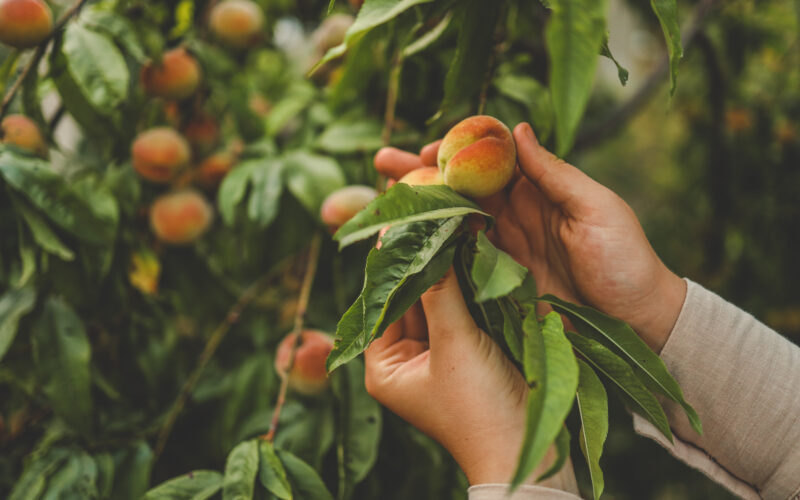I always thought of myself as a healthy person. I ate well, exercised regularly, never smoked, never used hormonal contrôle des naissances, and carried a perfectly normal weight. I wasn’t someone who obsessed over health, but I had good habits and I trusted my body. I assumed, like many women do, that if something was wrong, I would feel it.
I had heard of women struggling to conceive, or who had les déséquilibres hormonaux ou les maladies auto-immunes. However, most of these women had clear symptoms: irregular cycles, painful cycles, many miscarriages or struggles to conceive. I thought maybe one day when I was actively pursuing pregnancy, I could be surprised like so many other women, but in the meantime I had nothing to worry about.
But then, on a random Tuesday afternoon, everything changed.
I was at work with a few nurses who were getting certified as sonographers and needed to practice ultrasound scanning. They needed someone to scan and I volunteered. As they ran the wand across my abdomen, I remember one of them pausing, her eyes squinting. “Do you have regular cycles?” I responded: yes. Then, “Have you had any painful periods?” I said: no. And then she added, “You have a 7.5cm complex cyst in your ovary.”
They were shocked. After all, that’s about the size of a peach! Especially surprising was the fact that I wasn’t in pain, and my cycles were perfectly regular. But there it was: a huge cyst had somehow quietly snuck up on me, and given that there were no other symptoms, I might have only discovered it if the cyst had burst or twisted my ovary (a medical emergency known as ovarian torsion).
Cyst removal surgery, relief, and questions
Within weeks I was sitting in an OB’s office, scheduling surgery. The doctor assured me it was nothing to worry about—sometimes cysts just happen. He told me that one cyst was likely just a fluke, a weird twist of biology, and that I didn’t need to change anything in my life.
But I couldn’t shake the questions.
Why did this happen?
Could it happen again?
And most importantly: Was there something I could do to prevent it?
That silent, painless, and invisible (to me) cyst became the catalyst for a new way of thinking about my body.
A wake-up call about my reproductive health
Up until that point, I carried a set of assumptions I think many women share. I believed that as long as my weight was healthy, my cycles were regular, and I wasn’t in pain, then my reproductive health was fine. I also believed that I didn’t really need to think too much about my hormones, uterus, or ovaries until I wanted to get pregnant.
But here was my wake-up call: our bodies don’t always announce when something is wrong. Sometimes they stay quiet, even as issues develop in the background. And if we wait until something is broken to start paying attention, we’ve already lost precious time.
But here was my wake-up call: our bodies don’t always announce when something is wrong. Sometimes they stay quiet, even as issues develop in the background. And if we wait until something is broken to start paying attention, we’ve already lost precious time.
Research shows that functional ovarian cysts are actually quite common among women of reproductive age, often going undetected because they resolve on their own. But in some cases, they can grow large enough to cause complications or require surgical removal. That was exactly what happened to me.
The subtle signs I ignored about my reproductive health
After the surgery, I started reflecting on things I had brushed off for years.
I thought about how hard it had become for me to lose weight, even when I was meticulously tracking calories and in a clear caloric deficit. I had previously chalked it up to being unlucky or “getting older.” Even though I would have preferred to weigh a bit less, I also knew that I didn’t have an unhealthy weight. In fact, to many, I’m sure I looked perfectly normal. But after discovering the cyst, I started to see my failed efforts to lose weight as a sign of a metabolic change.
I also started thinking differently about my body hair. Before the cyst, I thought the hair on my body was just genetic. I had convinced myself that being hairier than other women was a family trait. But was it? After the cyst, I started to wonder, was this extra body hair a sign of hormonal imbalance? After realizing that I was hairier than the women in my own family, I had to admit that it probably wasn’t all “just genetics.”
I knew that conditions like polycystic ovary syndrome (SOPK) can present with subtle symptoms such as excess hair growth (hirsutism), weight gain, or difficulty losing weight, even if cycles still look normal on the surface. My bloodwork post-surgery had even come back “normal.” But this is when I began to realize: normal doesn’t always mean optimale. And the more I learned, the more I realized that hormones are delicate, interconnected, and crucial not just for fertility, but for overall health, mood, and vitality.
My body–and my health—is for more than just baby-making
This is one of the most important shifts I made in my mindset post-cyst: our reproductive and hormonal health is not just about pregnancy.
Culturally, we tend to treat women’s health almost exclusively through the lens of baby-making. If you’re not trying to conceive, the assumption is that you don’t need to worry about your reproductive health. But hormones regulate so much more than ovulation and conception. They affect our metabolism, our skin, our hair, our mental health, our energy, and our sleep.
Culturally, we tend to treat women’s health almost exclusively through the lens of baby-making. If you’re not trying to conceive, the assumption is that you don’t need to worry about your reproductive health. But hormones regulate so much more than ovulation and conception. They affect our metabolism, our skin, our hair, our mental health, our energy, and our sleep.
Studies show that even mild hormonal imbalances can contribute to depression, fatigue, or anxiety [1]. By thinking of hormones as “fertility-only,” I had neglected their influence in every other part of my life. And that cyst—quiet and unexpected—is what finally forced me to reevaluate.
What I changed after discovering my cyst
The journey that followed wasn’t about panic or radical overhauls. It was about becoming curious. I started learning about:
- Blood sugar balance. Even subtle imbalances can wreak havoc on hormones. Research shows that insulin resistance is closely linked with ovarian cysts and PCOS [2]. I began prioritizing protein intake and pairing carbs with fats and fiber.
- Exercise balance. I had always been active, but I began listening to how different workouts affected my energy. Overexercising, especially high-intensity cardio, can elevate cortisol and disrupt hormone balance.
- Stress and sleep. Cortisol impacts everything. I began treating sleep as non-negotiable and incorporated stress-management practices, since le stress chronique can worsen reproductive health.
- Cycle tracking. Beyond just marking the dates when I started my periods, I actually learned about the different cycle phases, what they mean, what’s normal for each, and what might signal imbalance.
None of this was about “fixing” myself. It was about knowing myself.
After months of digging via blood work, hormone panels, tracking symptoms, and talking to many doctors, I ended up with a PCOS diagnosis. Since PCOS is a syndrome, it can look and feel quite different from one woman to the other, but at the end of the day, it all comes down to a hormonal imbalance that can cause things like my cyst—and proves that, despite what my surgeon said, things like a peach-sized cyst are rarely just a “fluke.”
Cultivating a new respect for my body
Looking back, I realize how casually I treated my body before discovering that cyst. Not in an unhealthy way—I certainly didn’t abuse it—but I see now that I took it for granted. I assumed my body and my reproductive health would keep working well, and only if I had difficulty conceiving would I need to dive deeper.
But the truth is, our bodies deserve attention now. Not because they are broken, not because they are failing, but because they are ours, and we are worthy of good care. Throughout this ordeal, I realized how almost everything was affected by my health. When our hormones aren’t working well, our mood and energy levels are some of the first things to be negatively affected— and that affects how we show up to our lives on a daily basis.
In other words, that cyst may have been dismissed as a “fluke,” but for me, it was a turning point: a sign that I couldn’t just assume health; I had to cultivate it.
In other words, that cyst may have been dismissed as a “fluke,” but for me, it was a turning point: a sign that I couldn’t just assume health; I had to cultivate it.
Why taking care of our reproductive health matters for all women
I share this story not because I think everyone has a hidden cyst waiting to be discovered, but because I think many of us share the same mindset I once had: health is the absence of obvious problems. But that mindset leaves us vulnerable, and it fails to encompass the beauty and complex design of our bodies. As one of the doctors I saw in my search for answers put it, “our bodies are like a fine violin, very beautiful and capable of expounding beauty, but it needs to be kept tuned.” That’s what caring for your body does.
What if we approached our hormonal and reproductive health the same way we approach skincare, fitness, or nutrition? Not with emergency measures, but with daily practices of care and respect?
We deserve to know our bodies not just when we want to have babies, not just when something hurts, not just when a doctor gives us test results. Every woman deserves the peace of mind that comes from being attuned to her own rhythms and signals.
Final thoughts
That random Tuesday with the ultrasound nurses changed everything for me. What began as a casual practice session became the start of a much deeper relationship with my own body.
Today, I don’t obsess over my health. I don’t live in fear of cysts or diagnoses. But I live with more awareness. I listen more closely. I track, I learn, I respect. And if you’re reading this, I hope you do the same. Don’t wait until something goes wrong. Don’t wait until you’re in pain. Don’t wait until you’re trying to conceive. Your hormones and your health matter now. Because your body is not just a machine for survival or reproduction. It’s your lifelong home and it deserves your care every single day.
Références :
- Singh S, Pal N, Shubham S, Sarma DK, Verma V, Marotta F, Kumar M. Polycystic Ovary Syndrome: Etiology, Current Management, and Future Therapeutics. J Clin Med. 2023 Feb 11;12(4):1454. doi: 10.3390/jcm12041454. PMID: 36835989; PMCID: PMC9964744.
- Dunaif A. Insulin resistance and the polycystic ovary syndrome: mechanism and implications for pathogenesis. Endocr Rev. 1997 Dec;18(6):774-800. doi: 10.1210/edrv.18.6.0318. PMID: 9408743.






